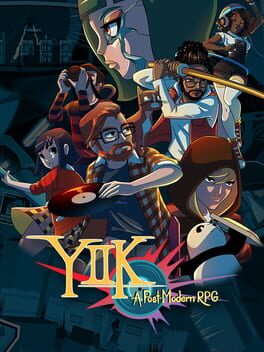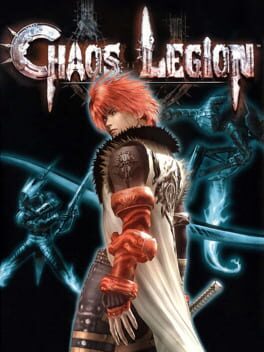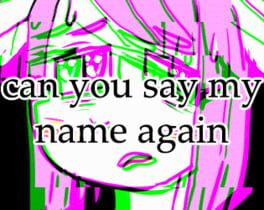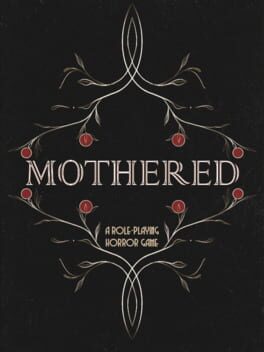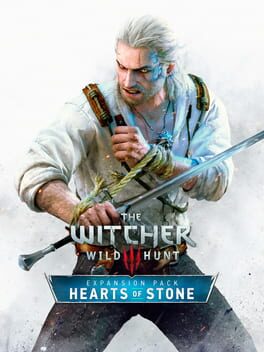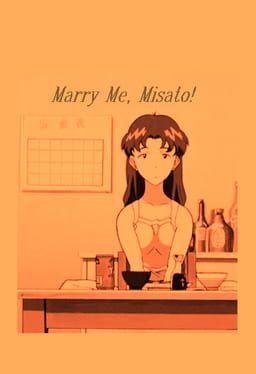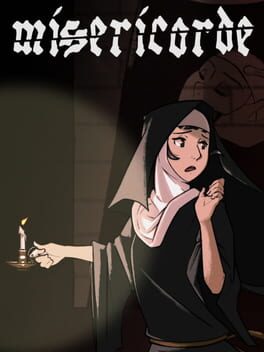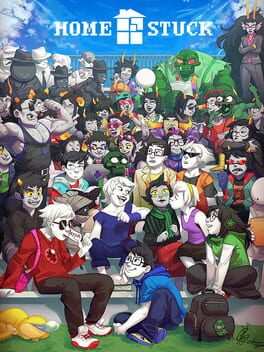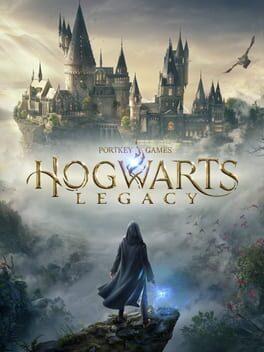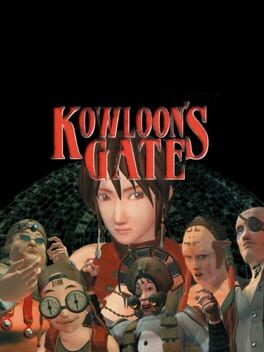katrinavalentina
162 Reviews liked by katrinavalentina
I had to see this one with my own two eyes for some twisted and self hurting reason, and boy was everyone right about how baffling and grueling of a self absorbed mess this one is. To me, YIIK represents the apex of the indie scene's obssession with the egocentric tortured artist narrative that has been the go-to window dressing for many of the critical darlings of the last decade, mostly due to how badly it fails on the execution of said concept.
Andrew Allanson makes his case for Alex's incredible lack of charisma and likeability by implying that those were intented attributes deliberately written to present an unlikely protagonist that defies the expectations of videogame conventions and serves to tell a "meaningful and thought provoking" narrative, but I do have to question if Andrew understands that you can write unredeemable pieces of shit and still have them be compelling people to follow, not unlike the characters from the inumerous prestigious novels and movies he so eagerly name drops as influences. The voice behind Alex's obnoxious and verbose inner thoughts and social interactions permeates most of YIIK's world and people, bloating the whole experience with an onslaught of solipsistic musings that would make your teen self cringe and inner world exposition dumps that would make Kojima blush, and a group of characters lacking in so much chemistry and entertaining banter that fill the game's dead air with loud meaningless conversations that made me appreciate how much of an art what Persona does is.
Tying it all up, you have one of the most unpleasant combat systems I have ever had the displeasure of experiencing in an rpg. A third of the way through I had to turn on Story Mode and Assist Mode while fast forwarding as much as I could, and I shudder to think of the people who subjected themselves to the rest of the game without resorting to any of those settings. There are design choices made here where I struggle to believe that someone made them without deliberately trying to make this combat system a living hell to wrestle with for 20 hours. Andrew infamously stated that if people aren't able to appreciate his game, then "games aren't art, but toys for children", an idea that I find very insincere when he himself has brushed aside the strengths of the medium as mere tools in service of his literary interests and fails to recognize the gameplay value of the many games he apes from and that already disprove his perception of the audience.
I have seen comparisons made between YIIK and The Room, and while YIIK's team has immensely more talent than whatever Tommy Wiseau has, I do see where that's coming from. You aren't so much in it to experience the art presented to you, as much as you are to see the psychosis of the artist behind it, and YIIK does have its poignant and head turning moments that reach Pathologic levels of antagonism towards the player that reveal some kind of accidental genius behind its aggresively mediocre facade. Not only does the world of YIIK unironically revolve around Alex by the end of the game, he implicates you in his self importance and passes onto you his responsibilities and obligations to be a better person, and I find the audacity and nerve to do that...kinda brilliant??, more so deserving of the pretentious "Postmodern RPG" moniker than the Earthbound/Mother 3 gimped 4th wall breaks or the doubt seered into me each time the loading screen tip "videogames are not a waste of time" popped up.
And dont get me wrong, thinking that YIIK is some misunderstood masterpiece of game design or secretely a arthouse cult classic in the making. Judging by Andrew's defensive posture when talking about the game's reception and the passive aggressiveness he slides into the game's updates, much of the artistic merit that can be inferred from YIIK is most likely just a pure casualty of someone trying to aspire to his influences and falling way short of the mark, and suggesting that most of it was intentional would be implying that someone could have the talent to consciously write and design as badly as YIIK was. But Andrew made art here, not the kind of art he wanted to make, but art nonetheless, and I do find more value in this relentlessly life draining game than most indie artsy fartsy games out there. I play YIIK and I see a sincere attempt at creating something unique and different, scrambling ideas from every piece of fiction the creator cherishes and throwing it at the wall to see what sticks, not having the self awareness to realize its own mediocrity or how misplaced and misguised many of those ideas might be, and I can definitely sympathize and relate to that.
PS: The Iwata "tribute" is the most unintentionally hilarious bit in the whole game. You have the power of videogames to make anything you want, and you put the man in a fucking tombstone.
Andrew Allanson makes his case for Alex's incredible lack of charisma and likeability by implying that those were intented attributes deliberately written to present an unlikely protagonist that defies the expectations of videogame conventions and serves to tell a "meaningful and thought provoking" narrative, but I do have to question if Andrew understands that you can write unredeemable pieces of shit and still have them be compelling people to follow, not unlike the characters from the inumerous prestigious novels and movies he so eagerly name drops as influences. The voice behind Alex's obnoxious and verbose inner thoughts and social interactions permeates most of YIIK's world and people, bloating the whole experience with an onslaught of solipsistic musings that would make your teen self cringe and inner world exposition dumps that would make Kojima blush, and a group of characters lacking in so much chemistry and entertaining banter that fill the game's dead air with loud meaningless conversations that made me appreciate how much of an art what Persona does is.
Tying it all up, you have one of the most unpleasant combat systems I have ever had the displeasure of experiencing in an rpg. A third of the way through I had to turn on Story Mode and Assist Mode while fast forwarding as much as I could, and I shudder to think of the people who subjected themselves to the rest of the game without resorting to any of those settings. There are design choices made here where I struggle to believe that someone made them without deliberately trying to make this combat system a living hell to wrestle with for 20 hours. Andrew infamously stated that if people aren't able to appreciate his game, then "games aren't art, but toys for children", an idea that I find very insincere when he himself has brushed aside the strengths of the medium as mere tools in service of his literary interests and fails to recognize the gameplay value of the many games he apes from and that already disprove his perception of the audience.
I have seen comparisons made between YIIK and The Room, and while YIIK's team has immensely more talent than whatever Tommy Wiseau has, I do see where that's coming from. You aren't so much in it to experience the art presented to you, as much as you are to see the psychosis of the artist behind it, and YIIK does have its poignant and head turning moments that reach Pathologic levels of antagonism towards the player that reveal some kind of accidental genius behind its aggresively mediocre facade. Not only does the world of YIIK unironically revolve around Alex by the end of the game, he implicates you in his self importance and passes onto you his responsibilities and obligations to be a better person, and I find the audacity and nerve to do that...kinda brilliant??, more so deserving of the pretentious "Postmodern RPG" moniker than the Earthbound/Mother 3 gimped 4th wall breaks or the doubt seered into me each time the loading screen tip "videogames are not a waste of time" popped up.
And dont get me wrong, thinking that YIIK is some misunderstood masterpiece of game design or secretely a arthouse cult classic in the making. Judging by Andrew's defensive posture when talking about the game's reception and the passive aggressiveness he slides into the game's updates, much of the artistic merit that can be inferred from YIIK is most likely just a pure casualty of someone trying to aspire to his influences and falling way short of the mark, and suggesting that most of it was intentional would be implying that someone could have the talent to consciously write and design as badly as YIIK was. But Andrew made art here, not the kind of art he wanted to make, but art nonetheless, and I do find more value in this relentlessly life draining game than most indie artsy fartsy games out there. I play YIIK and I see a sincere attempt at creating something unique and different, scrambling ideas from every piece of fiction the creator cherishes and throwing it at the wall to see what sticks, not having the self awareness to realize its own mediocrity or how misplaced and misguised many of those ideas might be, and I can definitely sympathize and relate to that.
PS: The Iwata "tribute" is the most unintentionally hilarious bit in the whole game. You have the power of videogames to make anything you want, and you put the man in a fucking tombstone.
Propping up video game reviews and out-of-context clips as if they hold incriminating value against a product or group of people is a cancer on this medium. It has done more work to de-legitimize games as a form of art than almost anything else. Honestly, you would laugh if somebody reviewed an album they had not listened to and simply said "it sound no good". me too lol.
You can dress up review as a flowery philosophical inquiry, a comedic retelling or most pretentiously a definitive answer to the question of "how good is it". I don't appreciate any of these and I don't think what I'm about to say is reductive, these are pretty much just time wasters that bring less to the table than the thing they're riffing on. I know this man, I absolutely love wasting time. It's not a bad thing that they exist, but let's stop pretending they're anything more. I believe reviews at their most valuable are either a showcase for the opinion of a reviewer with an understood character, or an assessment of what kind of person might appreciate the product.
I was convinced I hated this and that it was a piece of shit. I actually properly played it only after catching wind of a plot interpretation I was not aware of. When I had first tried to play it years ago, I was so blinded by indifference and the expectation that it was trash, I had missed the unbelievably blatant symbolism that unlocks almost all of the narrative's depth. I'm not saying it's without faults as any game might have, and it's no doubt a niche rpg, I just want you to know that a huge number of people discuss or comment on this game as if granted divine knowledge of it's quality from a higher authority, while in reality they don't even know what's happening in it. At the very least, this game forced me to re-examine my views of the online reaction culture that I already loathed, as I'd fallen victim to it. That's a bigger personal impact on me than most games.
It's funny what website I'm writing this on.
A game about a guy who treats both his life and his relationship with media as a grand and noble ordeal, while he also misunderstands them and treats them like disposable trash. And so, the response to YIIK somehow manages to be one of the most strange and fascinating things about it. I don't like the combat in this game very much btw, I like just about everything else in it quite a bit.
You can dress up review as a flowery philosophical inquiry, a comedic retelling or most pretentiously a definitive answer to the question of "how good is it". I don't appreciate any of these and I don't think what I'm about to say is reductive, these are pretty much just time wasters that bring less to the table than the thing they're riffing on. I know this man, I absolutely love wasting time. It's not a bad thing that they exist, but let's stop pretending they're anything more. I believe reviews at their most valuable are either a showcase for the opinion of a reviewer with an understood character, or an assessment of what kind of person might appreciate the product.
I was convinced I hated this and that it was a piece of shit. I actually properly played it only after catching wind of a plot interpretation I was not aware of. When I had first tried to play it years ago, I was so blinded by indifference and the expectation that it was trash, I had missed the unbelievably blatant symbolism that unlocks almost all of the narrative's depth. I'm not saying it's without faults as any game might have, and it's no doubt a niche rpg, I just want you to know that a huge number of people discuss or comment on this game as if granted divine knowledge of it's quality from a higher authority, while in reality they don't even know what's happening in it. At the very least, this game forced me to re-examine my views of the online reaction culture that I already loathed, as I'd fallen victim to it. That's a bigger personal impact on me than most games.
It's funny what website I'm writing this on.
A game about a guy who treats both his life and his relationship with media as a grand and noble ordeal, while he also misunderstands them and treats them like disposable trash. And so, the response to YIIK somehow manages to be one of the most strange and fascinating things about it. I don't like the combat in this game very much btw, I like just about everything else in it quite a bit.
Chaos Legion
2003
One of the main Discord servers I'm active in decided to start a gaming equivalent to a book club and chose this first because "niche PS2 game with a moody atmosphere" is like crack cocaine to our primary demographic of trans people with pretentious opinions on games. The first couple days of the month allotted to beating it went well with glowing praise for its combat mechanics, atmosphere, etc. and it seemed like we would have had the right to be contrarians about this overlooked PS2 game secretly being good. However, as the days went by, more and more people started to get filtered in a variety of places: Chapter 3's initial test of your knowledge of the combat mechanics, the Chapter 8 boss, the grind before the final boss. The English version's inflation of enemy stats in comparison to the Japanese version was just too much for us to handle. But when it seemed like no one would be able to beat this game, one brave hero rose up: GingerV
While weaker game club channel posters cowered in fear at the challenge posed by Chaos Legion, GingerV rose to the challenge and opened up a speedrun for the game's hardest difficulty. From there, they not only learned a lot of the game's mechanics that weren't explained well but noticed how odd it was that the run spent 40 minutes on Chapter 5 when its times for the other chapters were usually about 10 minutes. They then realized that these 40 minutes were spent farming health bar upgrades and decided to do the same, giving them the tools they needed to clear the game with little effort. The PS2 action game that filtered a server with several unironic DMC2 fans had finally met its match and could be laid to rest.
While weaker game club channel posters cowered in fear at the challenge posed by Chaos Legion, GingerV rose to the challenge and opened up a speedrun for the game's hardest difficulty. From there, they not only learned a lot of the game's mechanics that weren't explained well but noticed how odd it was that the run spent 40 minutes on Chapter 5 when its times for the other chapters were usually about 10 minutes. They then realized that these 40 minutes were spent farming health bar upgrades and decided to do the same, giving them the tools they needed to clear the game with little effort. The PS2 action game that filtered a server with several unironic DMC2 fans had finally met its match and could be laid to rest.
thea could, maybe, once settled, once fae gets faer adhd meds write a whole essay about this, but for right now Thea's thought siphonophores are too unruly to pull together.
.
One of the rare twine games that functions on a mobile phone and thea read it over the course of three days on the phone in one of it's more functional periods on public transport, coming home from work or going to a rave. It really filtered through thea's brain over the course of the month. Moments keep connecting. Coming back to. Returning.
The game is a hug, a nod of understanding. A taproot-amalgamation of neuroses and anxieties. So warm.
.
.
``Reality exists in a place unknown, and dreams exist within reality. And truth lies in your heart.
The contents of a person's heart shapes their appearance. And new images will change their hearts and their forms.
The power of imagination is the ability to create your own future, and the power to create your own flow of time.
But if people don't act of their own free will, then nothing will change at all. So, you must regain your own lost form by your own volition. ``
.
When thea gets lost, burnt out, unknowing of how to put faerself back together, this game will be there. These memory-fragments of other ppl will be there. Digital post-isolation. Stuck in 2017 but free to break out - breaking - itself a process.
.
One of the rare twine games that functions on a mobile phone and thea read it over the course of three days on the phone in one of it's more functional periods on public transport, coming home from work or going to a rave. It really filtered through thea's brain over the course of the month. Moments keep connecting. Coming back to. Returning.
The game is a hug, a nod of understanding. A taproot-amalgamation of neuroses and anxieties. So warm.
.
.
``Reality exists in a place unknown, and dreams exist within reality. And truth lies in your heart.
The contents of a person's heart shapes their appearance. And new images will change their hearts and their forms.
The power of imagination is the ability to create your own future, and the power to create your own flow of time.
But if people don't act of their own free will, then nothing will change at all. So, you must regain your own lost form by your own volition. ``
.
When thea gets lost, burnt out, unknowing of how to put faerself back together, this game will be there. These memory-fragments of other ppl will be there. Digital post-isolation. Stuck in 2017 but free to break out - breaking - itself a process.
Mothered
2021
To be a copy of a copy.
I'd like to apologize to Mothered, a game that I discounted as being shovelware garbage due solely to me confusing it as an entry in the Remothered series. Mothered has nothing to do with Remothered. They are very distinct games, namely in the fact that Mothered is good and Remothered sucks ass. I'm going to stop typing out these titles now before they lose all meaning. This work, contrary to what I was mistaking it as being a part of, is a well-written and stylish look at parental neglect and the definition of the self. While it certainly stumbles a bit as a game — a lot of tension-free wandering around and clicking everything to see what will advance the plot in the latter half — what is here works, and works well.
I suppose the only way to pull apart this story is by sharing some personal anecdotes. Growing up, I never felt particularly wanted by my parents. This is, broadly speaking, because I wasn't; they weren't ready for the responsibility of taking care of themselves, let alone a child, and they wound up retreating into some bad habits to cope with the loss of the little freedom they had. My mother parentified me, making it my sole responsibility to act as her therapist, saddling me with the responsibility of deciding what she should do about her problems at an age where I didn't have a clue about the world outside of elementary school; my father drank, and smoked, and snorted what he could find, and then he would turn a release valve and let off all of his built-up rage with yelling, and beatings, and by breaking whatever was in his path. I learned quickly that the best thing to be in this situation was useful, and the next best thing after that was to be quiet. Liana, the player character of Mothered, seems to have internalized this same lesson. Her mother remarks with genuine horror at one moment near the finale that Liana won't stop coming after them unless she has an objective. Liana needs busywork. Liana needs to be useful. Liana needs something to keep her quiet. I begin to notice some similarities.
It’s clear from the outset that something is very wrong, though what exactly that something is takes a while before you’re able to start deciphering it. There’s a grand linchpin of the plot that’s hinted to throughout the runtime of the game — error logs being printed to a console, strange commands that come in a voice that doesn’t belong to any character, ambiguity in places where there shouldn’t be any — but I ultimately don’t feel as though the ultimate revelation is the important bit. What Liana is matters less than what Liana isn’t, which is loved. The game, of course, agrees with me in this; the true ending of the game comes to the same conclusion where all is (mostly) made well. Where a sour taste is left in my mouth is in the sense that it’s up to Liana to become deserving of love rather than have it given to her unconditionally, based in no small part due to her family refusing to accept what she is. Then again, nobody ever said horror was supposed to be fair. Sometimes the scariest thing is not to be believed. I still have nightmares rooted in the fear of people not believing me, of thinking that I’m hysterical, all while some lurching evil grows closer with every passing moment.
That would suggest that this game is really only scary in a narrative sense, which would be incorrect. While I like to fashion myself as a big tough man who doesn't scare easily, there are a select few horror games that tend to make me curl up. This is one of those. While the daytime sections are very open, with these beautiful rays of orange light glittering though the autumn leaves, the same cannot be said for when it gets dark. Everything gets more wrong the more the sun sets. Your brother, tucked away so deep in his bedroom that you can’t ever see him, will start to tell you how your mother has been lying to you. Your mother will stand stark still at the far end of a pitch-black hallway, waiting for you in complete silence. You’ll try to sleep and get a warning that you can’t sleep with someone else in the room, and it’s not until you go to turn on the light that you find your mother shrouded in darkness, almost as though she was hoping you wouldn’t notice her there. Sometimes mother's animations are smooth, other times they're jittery, other times they don't happen at all. There are places that you're forbidden from going under threat (at least, implied threat) of death. Your father lies about talking on the phone with you to his co-workers, pretending that you're his wife rather than his daughter. This house is not a home. More importantly, it isn't your home.
The greatest twist underlying all of this is, in actuality, the fact that this all ties into a series of games that Enigma Studio are putting out. It's not just an anthology, either; all of these titles are connected and part of a greater ARG that links all of them together, with info being locked behind entirely different games and requiring certain registry files to access a secret portion of Haunted PS1's Demo Disk: Spectral Mall. I don't especially care about any of this, and the good news is that it doesn't detract from the base game of Mothered in the slightest. The pseudo-sequel, Mothered: Home, does require heavy investment in the broader idea of the Enigma Machine universe, so I wouldn't recommend getting into it unless you're one of either desperate for more of this or curious to dig your fingers into an ARG. It's ignorable, though, and ignoring it is what I'm going to continue doing.
My gripes are minimal. I do think that spots like the barn and the end of the road tend to be placed a bit too far away relative to how fast your character's maximum run speed is. The slow character speed works great for building up tension when you're inside the house, but when you're in a big, open field during the daytime and there's nothing going on, it serves only as a pace killer. People have complained about the apple collecting section enough for me to know there isn't much juice left in the discussion, but it does take too long and the apples are too hard to spot. None of this is terrible, but in a game that's so tightly paced everywhere else, these little missteps stick out all the more obviously.
Aside from that, this is a strong showing. I'm not certain if I'll dig too much deeper into the creator's related games — I don't really think that what's being advertised in those is going to be what I came to this for — but I'm very glad to have played this all the same. As a standalone project, this is impressive. It's in the Palestinian Relief Bundle if you've already bought that, and it'll be going for about another week from the date of posting if you haven't.
Be with mother.
I'd like to apologize to Mothered, a game that I discounted as being shovelware garbage due solely to me confusing it as an entry in the Remothered series. Mothered has nothing to do with Remothered. They are very distinct games, namely in the fact that Mothered is good and Remothered sucks ass. I'm going to stop typing out these titles now before they lose all meaning. This work, contrary to what I was mistaking it as being a part of, is a well-written and stylish look at parental neglect and the definition of the self. While it certainly stumbles a bit as a game — a lot of tension-free wandering around and clicking everything to see what will advance the plot in the latter half — what is here works, and works well.
I suppose the only way to pull apart this story is by sharing some personal anecdotes. Growing up, I never felt particularly wanted by my parents. This is, broadly speaking, because I wasn't; they weren't ready for the responsibility of taking care of themselves, let alone a child, and they wound up retreating into some bad habits to cope with the loss of the little freedom they had. My mother parentified me, making it my sole responsibility to act as her therapist, saddling me with the responsibility of deciding what she should do about her problems at an age where I didn't have a clue about the world outside of elementary school; my father drank, and smoked, and snorted what he could find, and then he would turn a release valve and let off all of his built-up rage with yelling, and beatings, and by breaking whatever was in his path. I learned quickly that the best thing to be in this situation was useful, and the next best thing after that was to be quiet. Liana, the player character of Mothered, seems to have internalized this same lesson. Her mother remarks with genuine horror at one moment near the finale that Liana won't stop coming after them unless she has an objective. Liana needs busywork. Liana needs to be useful. Liana needs something to keep her quiet. I begin to notice some similarities.
It’s clear from the outset that something is very wrong, though what exactly that something is takes a while before you’re able to start deciphering it. There’s a grand linchpin of the plot that’s hinted to throughout the runtime of the game — error logs being printed to a console, strange commands that come in a voice that doesn’t belong to any character, ambiguity in places where there shouldn’t be any — but I ultimately don’t feel as though the ultimate revelation is the important bit. What Liana is matters less than what Liana isn’t, which is loved. The game, of course, agrees with me in this; the true ending of the game comes to the same conclusion where all is (mostly) made well. Where a sour taste is left in my mouth is in the sense that it’s up to Liana to become deserving of love rather than have it given to her unconditionally, based in no small part due to her family refusing to accept what she is. Then again, nobody ever said horror was supposed to be fair. Sometimes the scariest thing is not to be believed. I still have nightmares rooted in the fear of people not believing me, of thinking that I’m hysterical, all while some lurching evil grows closer with every passing moment.
That would suggest that this game is really only scary in a narrative sense, which would be incorrect. While I like to fashion myself as a big tough man who doesn't scare easily, there are a select few horror games that tend to make me curl up. This is one of those. While the daytime sections are very open, with these beautiful rays of orange light glittering though the autumn leaves, the same cannot be said for when it gets dark. Everything gets more wrong the more the sun sets. Your brother, tucked away so deep in his bedroom that you can’t ever see him, will start to tell you how your mother has been lying to you. Your mother will stand stark still at the far end of a pitch-black hallway, waiting for you in complete silence. You’ll try to sleep and get a warning that you can’t sleep with someone else in the room, and it’s not until you go to turn on the light that you find your mother shrouded in darkness, almost as though she was hoping you wouldn’t notice her there. Sometimes mother's animations are smooth, other times they're jittery, other times they don't happen at all. There are places that you're forbidden from going under threat (at least, implied threat) of death. Your father lies about talking on the phone with you to his co-workers, pretending that you're his wife rather than his daughter. This house is not a home. More importantly, it isn't your home.
The greatest twist underlying all of this is, in actuality, the fact that this all ties into a series of games that Enigma Studio are putting out. It's not just an anthology, either; all of these titles are connected and part of a greater ARG that links all of them together, with info being locked behind entirely different games and requiring certain registry files to access a secret portion of Haunted PS1's Demo Disk: Spectral Mall. I don't especially care about any of this, and the good news is that it doesn't detract from the base game of Mothered in the slightest. The pseudo-sequel, Mothered: Home, does require heavy investment in the broader idea of the Enigma Machine universe, so I wouldn't recommend getting into it unless you're one of either desperate for more of this or curious to dig your fingers into an ARG. It's ignorable, though, and ignoring it is what I'm going to continue doing.
My gripes are minimal. I do think that spots like the barn and the end of the road tend to be placed a bit too far away relative to how fast your character's maximum run speed is. The slow character speed works great for building up tension when you're inside the house, but when you're in a big, open field during the daytime and there's nothing going on, it serves only as a pace killer. People have complained about the apple collecting section enough for me to know there isn't much juice left in the discussion, but it does take too long and the apples are too hard to spot. None of this is terrible, but in a game that's so tightly paced everywhere else, these little missteps stick out all the more obviously.
Aside from that, this is a strong showing. I'm not certain if I'll dig too much deeper into the creator's related games — I don't really think that what's being advertised in those is going to be what I came to this for — but I'm very glad to have played this all the same. As a standalone project, this is impressive. It's in the Palestinian Relief Bundle if you've already bought that, and it'll be going for about another week from the date of posting if you haven't.
Be with mother.
Faust meets Witcher in one of the most deeply tragic and moving love stories of all time. Hearts of Stone is more than just a love story; it is also an interrogation of love, seeking to both affirm love and understand its proclivity for destruction when left unchecked. It retells an age-old story, but it does so in a way that excellently demonstrates The Witcher's almost supernatural ability to transform simple story concepts into some of the most intricate and riveting studies of the human condition ever seen.
Marry Me, Misato!
2005
Cyberpunk 2077
2020
A murder mystery VN set in a 1482 monastary (kinda reminds me of Pentiment actually but more of a direct kinetic novel than that was). As a “Volume One” entry the central mystery it’s building toward is sadly left incomplete for now, but I would highly recommend it on its own anyway as its character writing and presentation really set it apart
While the cast overall is pretty compelling, it’s the protagonist that really makes this for me. Centered on Hedwig, an Anchoress who lived most of her life in total isolation, who’s suddenly forced out her cell by her Superior and given the goal of secretly trying to solve the murder of one of the convent’s Sisters. What makes Misericorde really interesting so far is not exactly the mystery itself (though the potential is definitely there), but seeing how completely unprepared Hedwig is for such a task and having to overcome her poor social skills as a result. Her internal dialogue is really well written and descriptive, watching her clash so heavily with trying to interact with the other Sisters while also playing a “detective” really makes her compelling to follow
This VN also looks and sounds really cool. The use of a monochrome aesthetic for the sprites and (I’m assuming) real photos as the backgrounds works really well in giving the monastery an unsettling gothic atmosphere. And while there’s no voice acting the music is excellent too, kind of hard to describe but it’s like lo-fi or trip hop sounding which seems like an odd mix but it’s actually very fitting
My feelings on it may change when I can think on it as a whole, but as is it’s really good and I’m very excited to see how it continues for Volume Two. Shows a lot of promise if it can pay off from all the build up
While the cast overall is pretty compelling, it’s the protagonist that really makes this for me. Centered on Hedwig, an Anchoress who lived most of her life in total isolation, who’s suddenly forced out her cell by her Superior and given the goal of secretly trying to solve the murder of one of the convent’s Sisters. What makes Misericorde really interesting so far is not exactly the mystery itself (though the potential is definitely there), but seeing how completely unprepared Hedwig is for such a task and having to overcome her poor social skills as a result. Her internal dialogue is really well written and descriptive, watching her clash so heavily with trying to interact with the other Sisters while also playing a “detective” really makes her compelling to follow
This VN also looks and sounds really cool. The use of a monochrome aesthetic for the sprites and (I’m assuming) real photos as the backgrounds works really well in giving the monastery an unsettling gothic atmosphere. And while there’s no voice acting the music is excellent too, kind of hard to describe but it’s like lo-fi or trip hop sounding which seems like an odd mix but it’s actually very fitting
My feelings on it may change when I can think on it as a whole, but as is it’s really good and I’m very excited to see how it continues for Volume Two. Shows a lot of promise if it can pay off from all the build up
Homestuck
2009
Hogwarts Legacy
2023
Drakengard
2003
Kowloon's Gate
1997
“Wannin are—how should I put this—a human that has become half-object. There’s no other way to explain it. Well, then why are they called wannin? When someone becomes a wannin they have to keep thinking they’re no longer human, but an object; they must have delusions. If those delusions run out they’ll become an object instantly, and completely.
That is to say, continuing their delusions is proof that they’re half-human.”
Kowloon’s Gate is a game that I’ve been interested in since I first saw its name in a collection of PS1 isos. Feng Shui? The Kowloon Walled City? 4 discs named after the Four Symbols? It was immediately interesting to me, and only became more so after I saw images from the game. I only had good impressions, so how was the actual game?
Well, it’s good, there’s some issues, but no more than the average adventure game, and they don’t really bring it down too much. It’s really surprising how mundane the issues for this game are, all things considered: I’ve experienced more surreal gameplay issues in low-budget brawlers. A couple simple flaws you’ll observe early on: incredibly slow movement in the JPEG dungeons (the non-combat pre-rendered sections,) annoying specific dialogue flags in the JPEG dungeons that block off progress, and the navigator holding your dick so hard in the first real-time dungeon that you might as well not be exploring. The latter thankfully resolves itself after the first dungeon, since the later dungeons have more complex layout, but the former two remain throughout the game. Thank god Kowloon’s Front is destined to go to hell and die.
Anyway, the gameplay foibles for me were fairly minor. I can see people possibly being annoyed by the real-time dungeons since the gameplay is fairly basic (you attack weaknesses based off of wuxing,) and the dungeons are labyrinthine, but I thought they were a nice breather from meandering and dialogue-heavy JPEG dungeons. The main draw for this game is its story and art, so I’ll move to that now (well the story, I don’t have any ability to judge the art, besides saying I like it.)
I like the story of Kowloon’s Gate. A story, in part, about fate and destiny works very well with the linearity of an adventure game. Even if the protagonist changes every area they enter within the game, since you’re pretty clearly told what you need to do, it very rarely feels like something that you actually did of your own free will. The lack of puzzles might be a little disappointing, but it helps the story move along in several ways here: mainly, it allows for the game to go on philosophical tangents without much risk of the player getting too lost thinking about what it would be like to be an electric fan.
So, in effect I would say there’s two major aspects of Kowloon’s Gate story: the surface story you’re given at the beginning about restoring balance to the to worlds of Yin and Yang, and finding the Four Symbols, and then the more esoteric aspects like wannin, minli and so on. The former is effectively the vessel of the story, and the latter is the cloudy narrative liquid that resides within it. Part of one whole but distinct from one another, so the story ends up being simple and at the same time complex. Thematic! The general formula for the narrative is that you enter an area, scout around, find out there’s a problem, some guy hints that an item you got 1-3 hours ago can turn the problem into dust, some philosophy, some dungeon crawling, you find the problem and use said item to turn it into dust. Rinse and repeat until the end of the game.
Perhaps a little reductive, but it was a contrast I found difficult to ignore. For every bit like the start of this review, there’s another where someone tells you that the evil guy in your way is weak to wigs, and can be defeated easily if you have one. Personally, my favorite part of all of it was the wannin. Since being a wannin isn’t exactly a good or bad thing, you get a wide variety of wannin characters. Besides that, the wannin designs are interesting, and I like the odd metaphysical position the story places them in.
Anyway, that’s it for 2023 I suppose. Pretty good end to the year, maybe it’s for the best that I took a long ass time finishing this game.
Supplemental information for the initial quote: since wannin must have delusions (妄想) to live they are as a result, wannin.(妄人) The first character in the word for delusion+person. This is spelled out more clearly in the rest of the page past where I ended, but I preferred leaving it where I did.
That is to say, continuing their delusions is proof that they’re half-human.”
Kowloon’s Gate is a game that I’ve been interested in since I first saw its name in a collection of PS1 isos. Feng Shui? The Kowloon Walled City? 4 discs named after the Four Symbols? It was immediately interesting to me, and only became more so after I saw images from the game. I only had good impressions, so how was the actual game?
Well, it’s good, there’s some issues, but no more than the average adventure game, and they don’t really bring it down too much. It’s really surprising how mundane the issues for this game are, all things considered: I’ve experienced more surreal gameplay issues in low-budget brawlers. A couple simple flaws you’ll observe early on: incredibly slow movement in the JPEG dungeons (the non-combat pre-rendered sections,) annoying specific dialogue flags in the JPEG dungeons that block off progress, and the navigator holding your dick so hard in the first real-time dungeon that you might as well not be exploring. The latter thankfully resolves itself after the first dungeon, since the later dungeons have more complex layout, but the former two remain throughout the game. Thank god Kowloon’s Front is destined to go to hell and die.
Anyway, the gameplay foibles for me were fairly minor. I can see people possibly being annoyed by the real-time dungeons since the gameplay is fairly basic (you attack weaknesses based off of wuxing,) and the dungeons are labyrinthine, but I thought they were a nice breather from meandering and dialogue-heavy JPEG dungeons. The main draw for this game is its story and art, so I’ll move to that now (well the story, I don’t have any ability to judge the art, besides saying I like it.)
I like the story of Kowloon’s Gate. A story, in part, about fate and destiny works very well with the linearity of an adventure game. Even if the protagonist changes every area they enter within the game, since you’re pretty clearly told what you need to do, it very rarely feels like something that you actually did of your own free will. The lack of puzzles might be a little disappointing, but it helps the story move along in several ways here: mainly, it allows for the game to go on philosophical tangents without much risk of the player getting too lost thinking about what it would be like to be an electric fan.
So, in effect I would say there’s two major aspects of Kowloon’s Gate story: the surface story you’re given at the beginning about restoring balance to the to worlds of Yin and Yang, and finding the Four Symbols, and then the more esoteric aspects like wannin, minli and so on. The former is effectively the vessel of the story, and the latter is the cloudy narrative liquid that resides within it. Part of one whole but distinct from one another, so the story ends up being simple and at the same time complex. Thematic! The general formula for the narrative is that you enter an area, scout around, find out there’s a problem, some guy hints that an item you got 1-3 hours ago can turn the problem into dust, some philosophy, some dungeon crawling, you find the problem and use said item to turn it into dust. Rinse and repeat until the end of the game.
Perhaps a little reductive, but it was a contrast I found difficult to ignore. For every bit like the start of this review, there’s another where someone tells you that the evil guy in your way is weak to wigs, and can be defeated easily if you have one. Personally, my favorite part of all of it was the wannin. Since being a wannin isn’t exactly a good or bad thing, you get a wide variety of wannin characters. Besides that, the wannin designs are interesting, and I like the odd metaphysical position the story places them in.
Anyway, that’s it for 2023 I suppose. Pretty good end to the year, maybe it’s for the best that I took a long ass time finishing this game.
Supplemental information for the initial quote: since wannin must have delusions (妄想) to live they are as a result, wannin.(妄人) The first character in the word for delusion+person. This is spelled out more clearly in the rest of the page past where I ended, but I preferred leaving it where I did.
